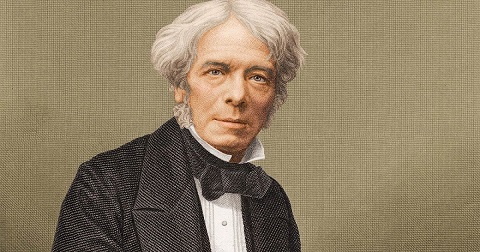|
home | what's new | other sites | contact | about |
|||
|
Word Gems exploring self-realization, sacred personhood, and full humanity
Quantum Mechanics
return to "Quantum Mechanics" main-page
Michael Faraday (1791 - 1867)
It is with pleasure I present to you this information concerning the life and work of Michael Faraday, one of history’s stellar intellectual lights. I’ve written about Mr. Faraday in other articles and will direct you to those writings:
I. Dr. Rupert Sheldrake lectured on the history of energy fields. Faraday invented this whole area. I’ve transcribed Sheldrake’s talk, see it HERE. II. Mister Faraday was the first to perceive the connection between electricity and magnetism; this, as basis of understanding the nature of light as electromagnetic wave. See the discussion in the “Einstein” article HERE. III. Also, allow me to excise a paragraph from another science writing which feature’s Faraday’s work:
Faraday's monumental insight of integration This began to change in the 1830s when Michael Faraday discovered that electricity is a form of magnetism and magnetism is a form of electricity. Armed with this insight of integration, Faraday invented the first electric motor. This harnessing of energy, with potential work-output far beyond the muscles of horses and humans, set the world on fire and opened the doors to great industrial advancement. The cat was out of the bag now, and scientists the world over raced to investigate other possible hidden connections among the energies of nature. Editor’s note: Michael Faraday, from the working class of Britain, lacked a formal education. But he loved knowledge with a burning passion and was determined to become a man of knowledge. At the time, Sir Humphry Davy, having discovered some of the first chemical elements, was the most celebrated scientist in England. A chance meeting with Faraday led to Davy offering the young bookbinder-apprentice a job as a lab assistant. In not too many years, the unknown Faraday would eclipse the fame of his mentor (who did not appreciate the competition). One of the jokes making the rounds in Davy’s day was, Sir Humphry was a fine scientist with many achievements to his credit, but his greatest discovery was Michael Faraday (smile).
|
|||
|
|
